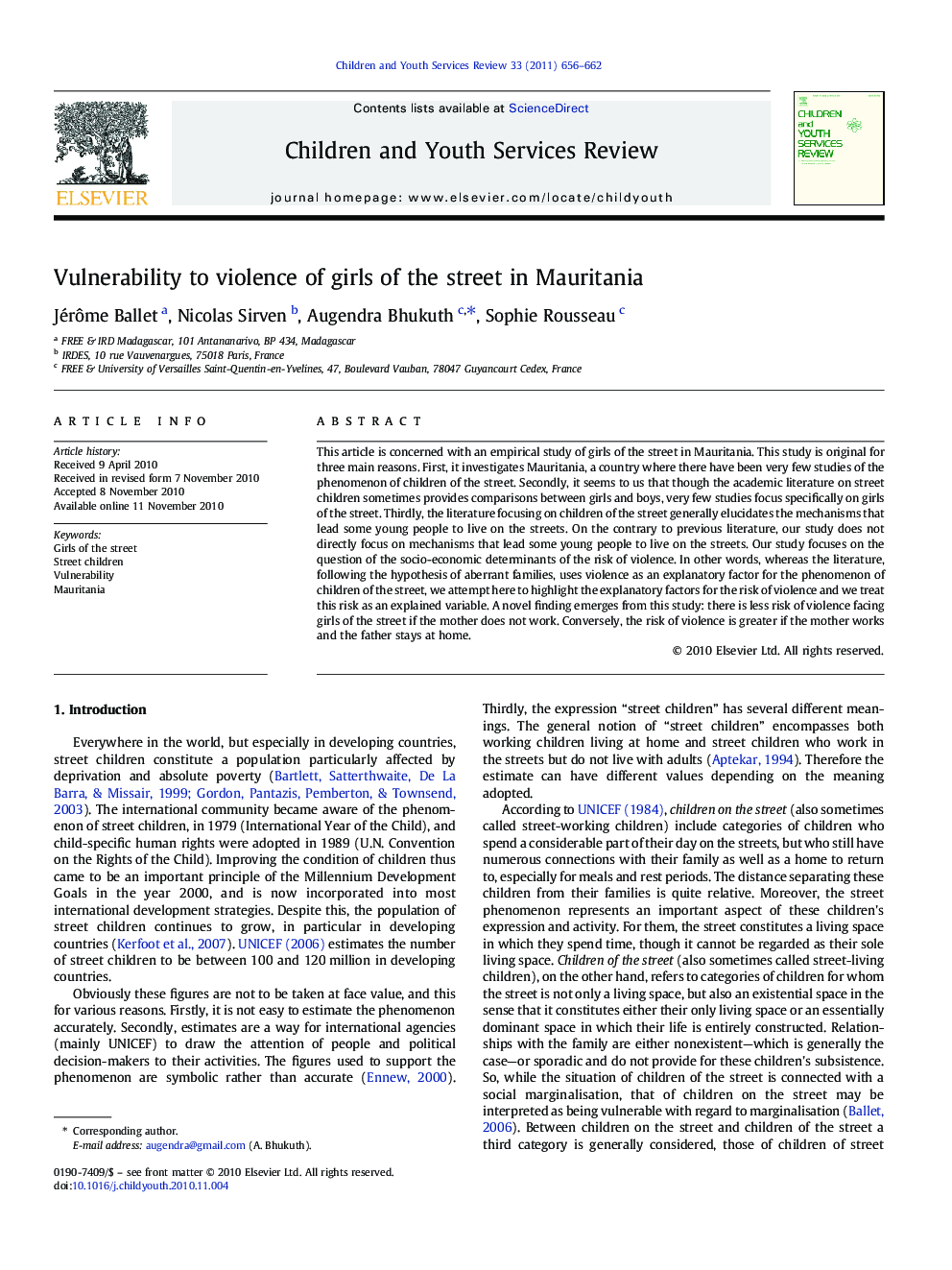| Article ID | Journal | Published Year | Pages | File Type |
|---|---|---|---|---|
| 346335 | Children and Youth Services Review | 2011 | 7 Pages |
This article is concerned with an empirical study of girls of the street in Mauritania. This study is original for three main reasons. First, it investigates Mauritania, a country where there have been very few studies of the phenomenon of children of the street. Secondly, it seems to us that though the academic literature on street children sometimes provides comparisons between girls and boys, very few studies focus specifically on girls of the street. Thirdly, the literature focusing on children of the street generally elucidates the mechanisms that lead some young people to live on the streets. On the contrary to previous literature, our study does not directly focus on mechanisms that lead some young people to live on the streets. Our study focuses on the question of the socio-economic determinants of the risk of violence. In other words, whereas the literature, following the hypothesis of aberrant families, uses violence as an explanatory factor for the phenomenon of children of the street, we attempt here to highlight the explanatory factors for the risk of violence and we treat this risk as an explained variable. A novel finding emerges from this study: there is less risk of violence facing girls of the street if the mother does not work. Conversely, the risk of violence is greater if the mother works and the father stays at home.
Research Highlights► In the Mauritanian context, girls from close-knit family are more likely to be subjected to violence. ► Mother status in the family is important. ► Mother’s allocation of time explained vulnerability to violence. ► Girls who do not undergo violence have prostitute mothers.
